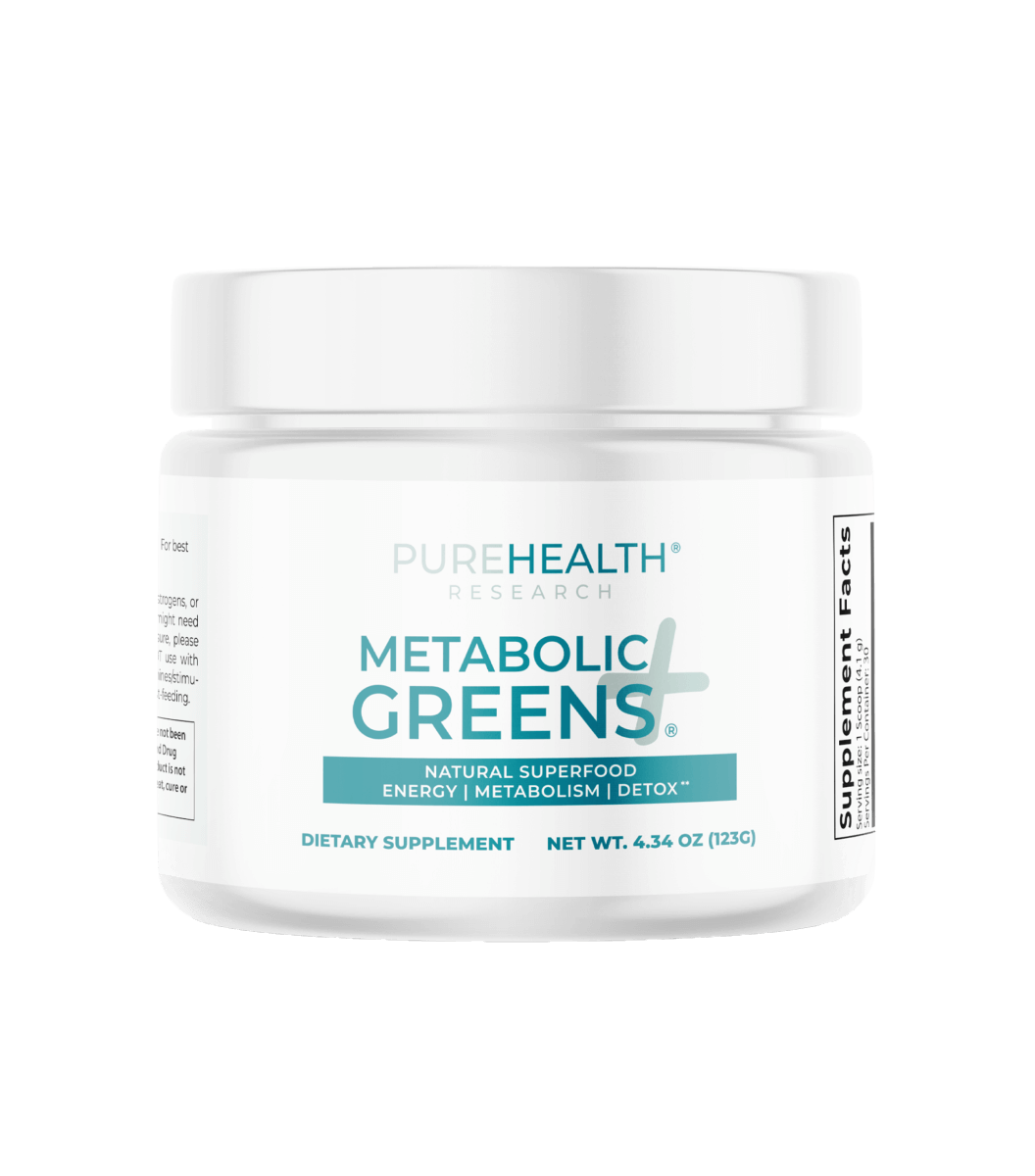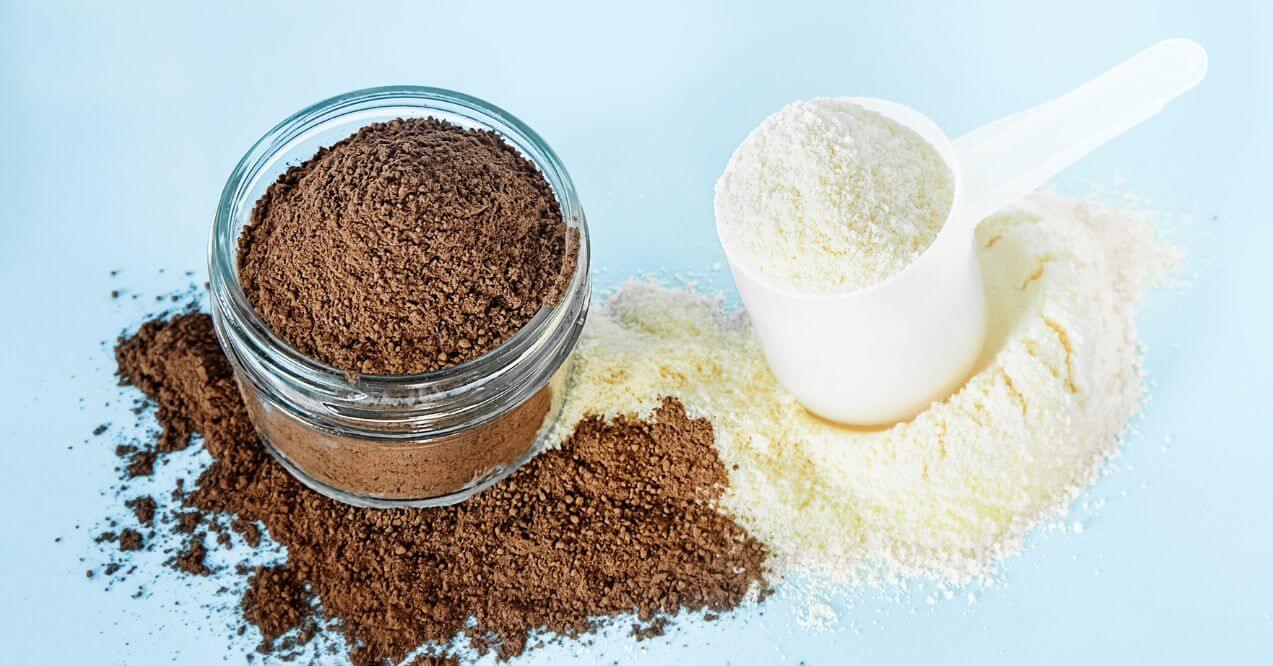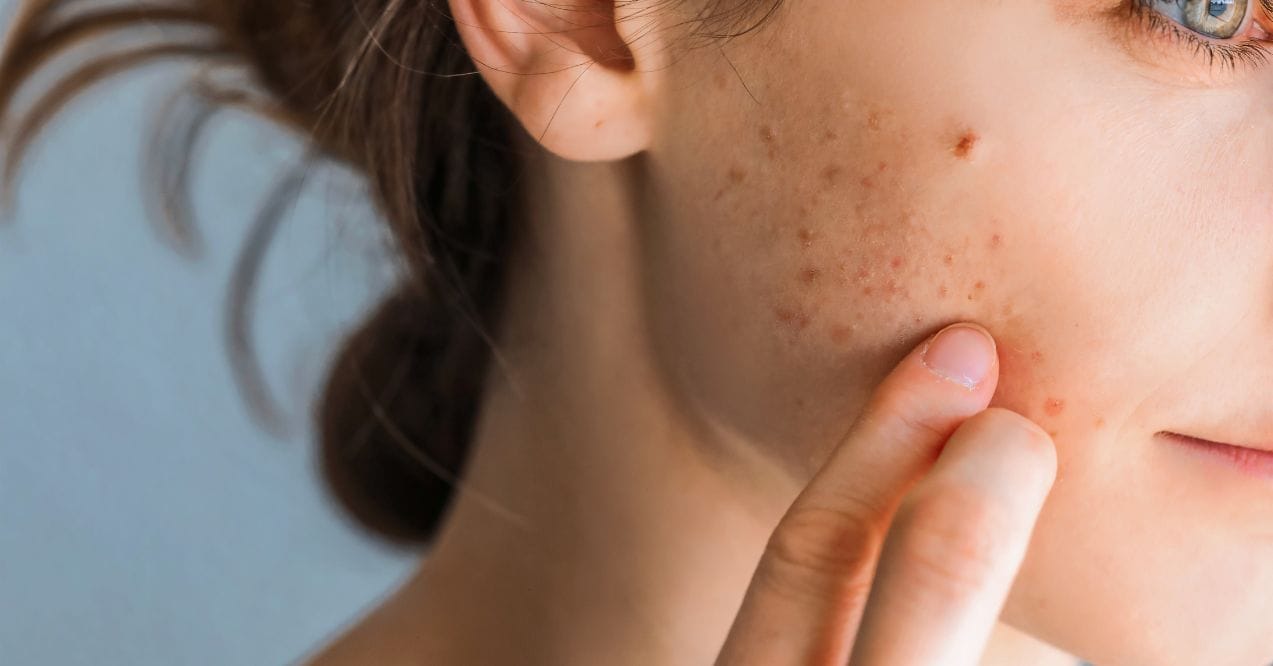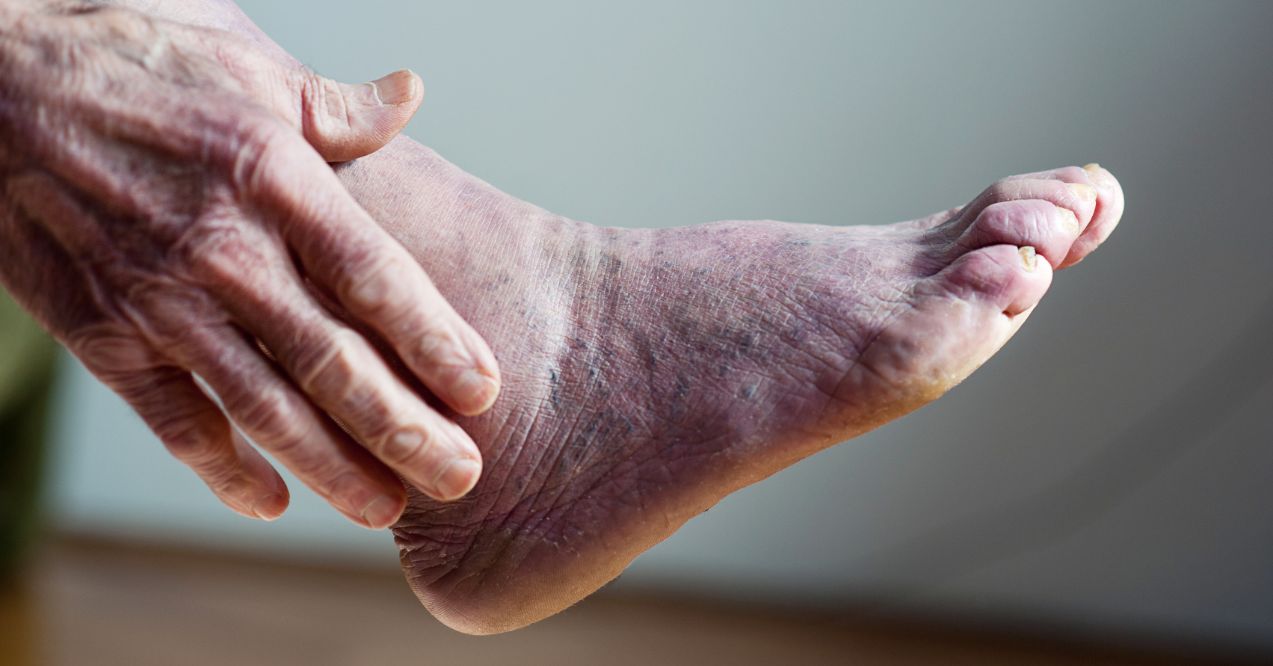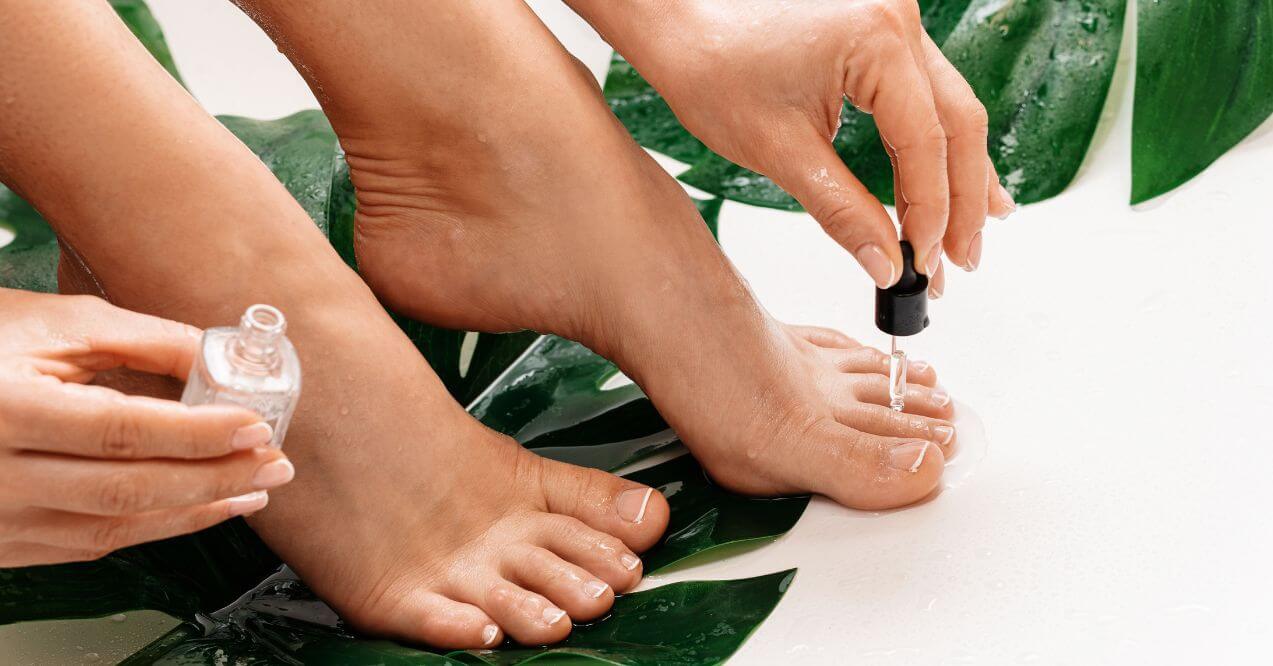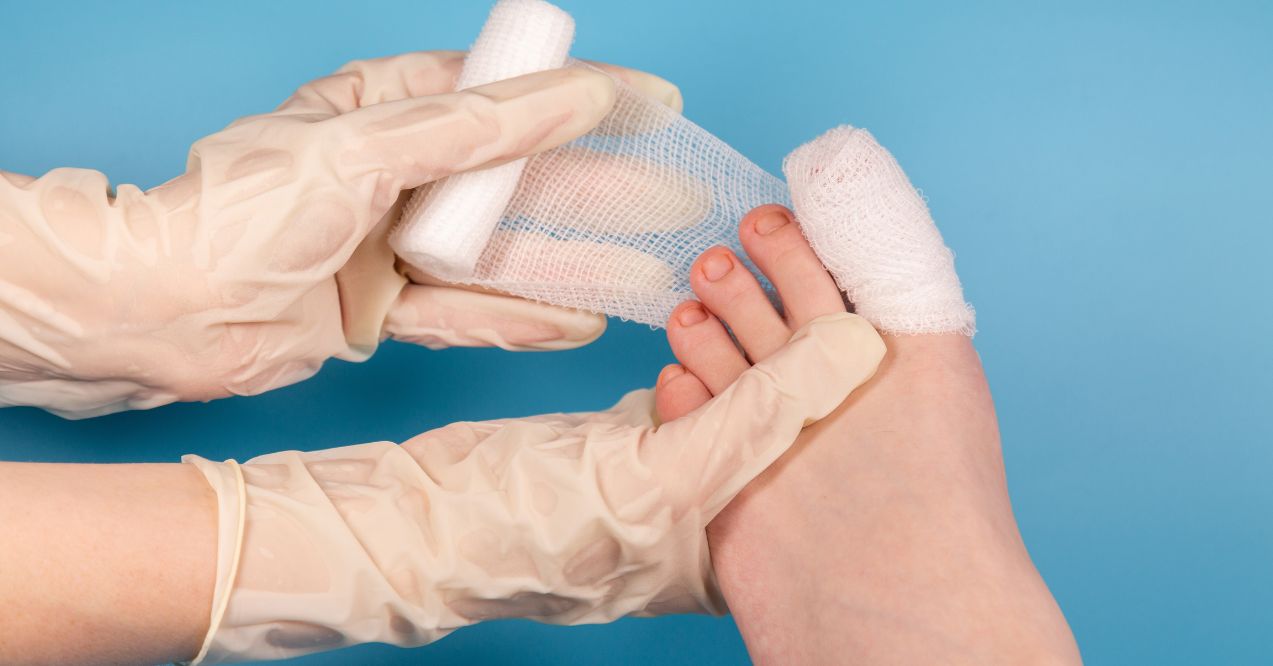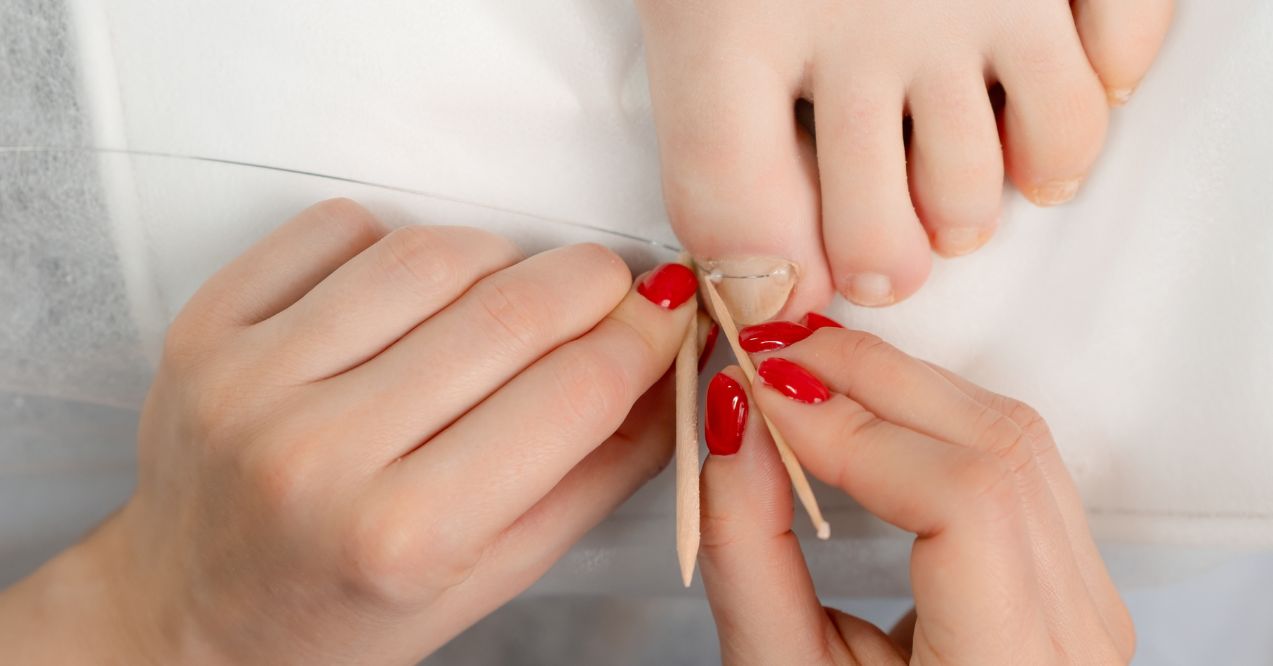Gut Health and Acne: How to Heal Your Skin?


The intricate dance between gut health and acne has captivated those in pursuit of clear skin. Recent studies solidify what many have suspected: there exists a profound link between our digestive system and skin health. This bond hasn’t only piqued the curiosity of skincare enthusiasts but has also resonated deeply within the scientific and medical realms.
For many, acne is not just a superficial concern but a sign pointing towards deeper physiological imbalances. Unraveling these links, especially the connection between gut health and hormonal acne, is pivotal to crafting a lasting solution. While dermatological treatments and skincare regimens play a vital role, the essence of the matter lies in the harmony of our internal ecosystem.
Research emphasizes the significance of a balanced gut in mitigating acne issues. This isn’t merely about outward appearances; our skin, often touted as our largest organ, offers a candid glimpse into our overall health and well-being. It’s akin to a mirror, reflecting the nuances of our internal state, sometimes spotlighting issues like hormonal imbalances that drive acne.
Before embarking on a journey to restore gut health as a means to address acne, it’s imperative to consult a healthcare expert. They can provide invaluable insights into maintaining a healthy gut, which can yield benefits ranging from bolstered immune and digestive systems to enhanced mood and, ultimately, radiant skin.
Nonetheless, taking proactive steps in understanding the gut-skin nexus can position you at the forefront of achieving a luminous complexion. Journey with us as we explore the depths of the gut-skin relationship and equip you with actionable insights for your daily regimen.
What is Gut Health?
The gut is a bustling microcosm, a true powerhouse responsible not only for digesting food but also for absorbing essential nutrients and expelling waste. It’s crucial to differentiate between the gut and the digestive tract: while the digestive tract comprises organs extending from the mouth to the anus, the gut focuses on a balanced ecosystem teeming with diverse microorganisms.
Delving deeper into gut health, it refers to the intricate balance of viruses, bacteria, yeast, and other essential microorganisms living harmoniously within our system. These microorganisms, collectively known as the microbiome, play pivotal roles – from aiding digestion to influencing our immune system and even communicating with our brain through the renowned gut-brain axis.
A balanced gut microbiome is not just about digestion. It’s a cornerstone for overall health. When this balance skews, a domino effect of health issues can ensue, including acne, a clear indicator that the body’s internal ecosystem might be out of sync. Skin flare-ups, often shrugged off as external issues, can sometimes be our body’s SOS signal, revealing underlying gut imbalances. Issues like constipation, inflammation, abdominal pain, indigestion, and a leaky gut could potentially translate into skin problems.
Gut Health and Acne: Exploring The Link
At first glance, acne—a primarily external concern—and the internal ecosystem of the gut might seem worlds apart. However, delve a little deeper, and the intricate relationship between the two begins to unfold, especially in the context of hormonal acne.
So, how do these seemingly unrelated entities connect? Let’s break it down:
- Inflammation: A thriving gut is home to a delicate balance of beneficial bacteria. However, when this balance is disrupted, inflammation ensues. As the body’s inflammatory response heightens, sebum (our skin’s natural oil) production can skyrocket, potentially leading to clogged pores and subsequent acne lesions.
- Toxic Buildup: Our gut plays a pivotal role in detoxifying the body. But, when compromised, toxins begin to accumulate. As their numbers swell, our body might attempt an emergency exit strategy—expelling them through the skin. This exodus can induce inflammation and subsequent severe breakouts.
- Hormonal Imbalance: A harmonious gut plays a symphony that harmonizes hormonal functions. But any discord (imbalance) in the gut can disrupt the hormonal orchestra, causing fluctuations that manifest as skin issues, including the dreaded hormonal acne.
- Leaky Gut Syndrome: Envision a barrier. When functioning correctly, it selectively filters out unwarranted entities. But when this intestinal barrier becomes overly permeable, toxins, undigested food, and bacteria can infiltrate the bloodstream. This not only triggers widespread inflammation but can also exacerbate skin conditions, like acne.
- The Stress Cascade: Our body’s response to challenges—both internal and external—creates ripples across our gut through the gut-brain axis. When the gut teeters off balance, stress levels surge, initiating a cycle that’s hard to break. Chronic stress reshapes hormone levels and immune functions, both influential players in acne’s development.
- Nutrient Absorption: Radiant skin doesn’t just require topical treatments; it demands nourishment. A fully operational gut ensures we absorb the vital nutrients our skin craves. Without this, deficiencies can creep in, casting a shadow over skin health and amplifying acne issues.
Acne, despite its superficial manifestation, is a complex puzzle with multifaceted pieces—genetics, diet, lifestyle choices, skincare habits, and environmental factors. To put together a clearer skin picture, addressing gut health is paramount. A holistic strategy—encompassing lifestyle alterations, dietary shifts, stress management, and potential supplementation—can be the keystone to unlocking healthier skin.
What Are the Signs of Poor Gut Health?
Your gut is a window into your overall well-being. When it’s out of balance, your body often sends out distress signals. Here are some telltale signs that your gut might need some TLC:
- Digestive Disturbances: Persistent symptoms like bloating, gas, diarrhea, constipation, or indigestion often point to a gut that’s not at its best.
- Food Intolerances: If you suddenly find certain foods hard to stomach or experience worsening sensitivities to foods you used to enjoy, it’s a hint that your gut might be in distress.
- Skin Troubles: Remember the gut-skin connection? An upset gut can manifest on your skin, contributing to conditions like acne, eczema, or psoriasis.
- Autoimmune Concerns: When your gut barrier is disrupted, unwanted substances might find their way into your bloodstream, potentially sparking an autoimmune response.
- Susceptibility to Infections: If you’re catching colds more often or battling frequent infections, it might be due to a weakened immune system courtesy of a compromised gut.
Understanding these signs is the first step towards restoring your gut to optimal health. Addressing the root causes and seeking guidance can set you on the path to better overall well-being.
How Can I Support My Gut?
Your gut is more than just the center of digestion; it’s a pillar of your overall health, influencing everything from your immune function to your skin’s glow. Here are strategies to keep it humming along:
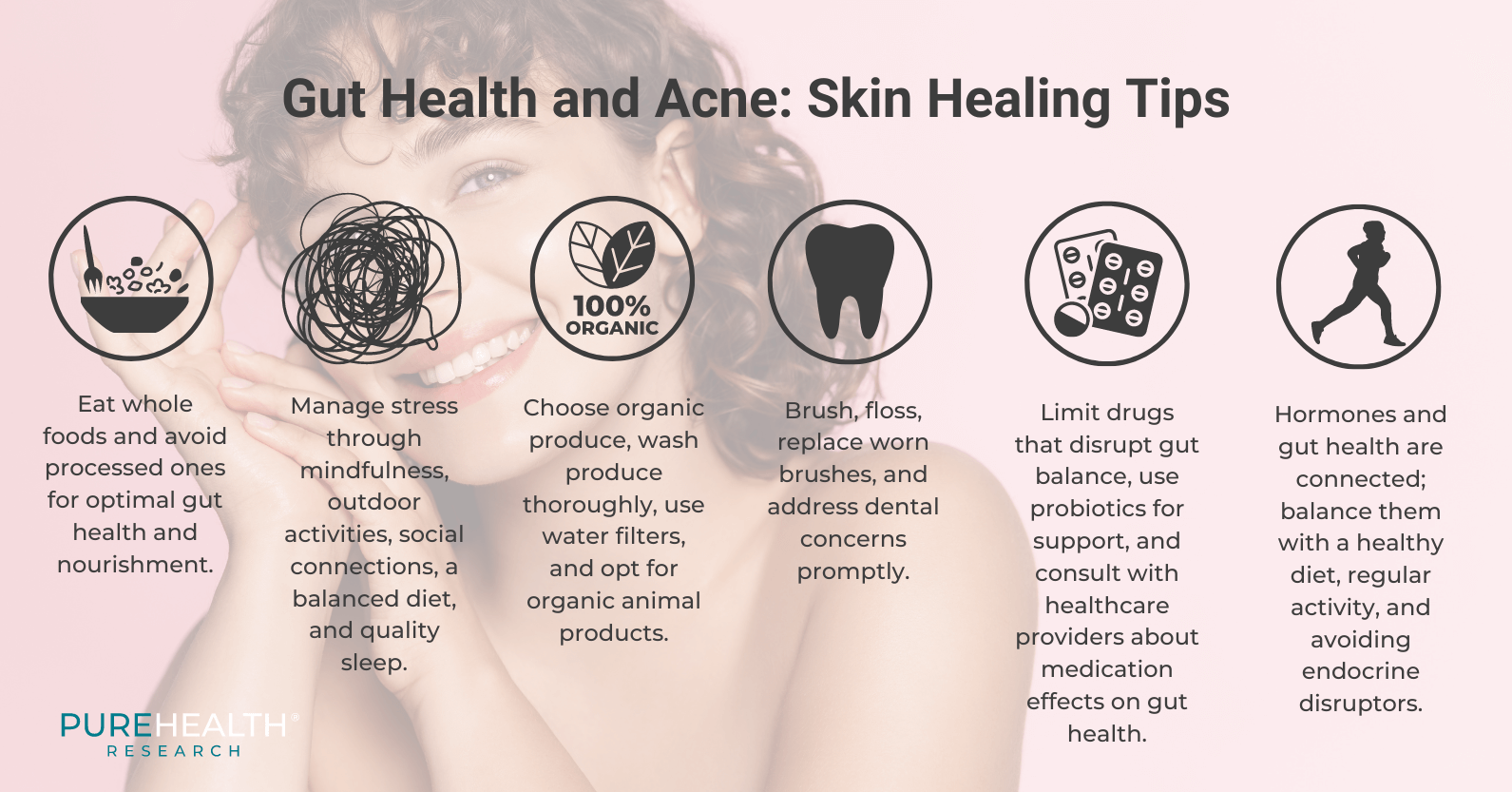
Tip 1: Prioritize a Clean Diet
A clean diet is like giving your gut a fresh, healthy environment to thrive in. Think of it as decluttering your inner ecosystem. Start by avoiding added sugars, indulgent treats like dark chocolate, and factory-made oils, all of which can stir up inflammation and mess with your digestion.
Instead, make whole, natural foods your go-to. Introduce more fiber-filled foods like fruits, veggies, and whole grains. Don’t forget about fermented foods – think yogurt or sauerkraut – which add beneficial bacteria to your gut. When you feed your body with these nutrient-packed choices, you’re not just eating; you’re nourishing every part of yourself. This solid foundation ensures your gut can do its job and support your overall health.
Tip 2: Practice Healthy Stress Management
We all encounter stress, but how we handle it can profoundly impact our gut health. Here’s your guide to managing stress effectively:
- Embrace Mindfulness: Dive deep into mindfulness. Focus on your breathing or how your body feels. It’s all about being in the moment and giving your mind a break.
- Breathe Deeply: Techniques like diaphragmatic breathing aren’t just fancy terms. They’re tools to kickstart your body’s relaxation mode and dial down the stress.
- Get Outdoors: Fresh air does wonders! Whether it’s a stroll in the park or a challenging mountain hike, nature has a unique way of melting away worries.
- Connect with Others: Feeling overwhelmed? Talk to friends, family, or join a support group. Sharing your concerns can lighten your emotional load.
- Watch Your Diet: Be mindful of caffeine and alcohol. Overindulgence can ramp up stress and mess with your gut.
- Prioritize Sleep: Never underestimate the power of a good night’s sleep. Aim for at least seven uninterrupted hours. Your gut and mind will thank you.
Remember, managing stress isn’t just about feeling better mentally; it’s a crucial step towards optimal gut health. Adopt these habits, and both your mind and gut will be in harmony.
Tip 3: Minimize Toxins and Pesticides
Unfortunately, the use of pesticides has become the norm in our current world, causing huge adverse effects on the human body. Minimizing exposure to these and other toxins is vital for maintaining a healthy gut. The harmful substances in widespread insecticides disrupt the balance of beneficial gut bacteria, contributing to various health issues. To protect yourself and your loved ones, opt for organic produce whenever you can.
In addition, make sure you wash all fruits and vegetables thoroughly, regardless of their origin. If possible, use a water filter at home to remove impurities and potential toxins from tap water. Doing so will help minimize exposure to contaminants in the water supply. Last, but not least, always choose organic and pasture-raised options when consuming animal products, as they are less contaminated with toxins, antibiotics, and hormonal disruptors.
Tip 4: Keep Up With Your Oral Hygiene
Your mouth is the gateway to your gut. Believe it or not, the health of your teeth and gums can influence the well-being of your gut. Here’s how you can ensure both stay in top condition:
- Brush Regularly: Aim to brush at least twice a day, preferably after meals. Use fluoride toothpaste and a soft-bristled brush to effectively remove food particles and bacteria without harming your gums.
- Don’t Skip the Floss: Brushing alone can’t reach every nook and cranny. Floss daily to keep those hidden spots between teeth plaque-free.
- Refresh Your Brush: Every three to four months, or even sooner if you see frayed bristles, get a new toothbrush. An effective brush is essential for thorough cleaning.
- Stay Alert to Oral Issues: Pain, bleeding gums, or other dental concerns? Don’t wait. Schedule a dentist visit. Addressing issues early on can ward off more serious complications that could ripple down to your gut.
By treating your mouth with care, you’re setting the stage for a healthier gut. It’s all interconnected, so let’s keep it in harmony.
Tip 5: Be Mindful of Medications
Certain drugs and antibiotics have the potential to adversely affect the gut microbiota and digestive system, resulting in imbalances and related digestive issues. It’s important to exercise caution regarding the use of laxatives, as their frequent or excessive use can disrupt the natural equilibrium of the gut and lead to dependency.
Moreover, it’s advisable to limit the consumption of over-the-counter pain relievers. Regular use of these medications can cause irritation to the gastrointestinal lining and disrupt gut health. It’s recommended to use them judiciously and in accordance with the provided guidelines.
When taking antibiotics or other medications that are known to disrupt the gut microbiota, consider incorporating probiotics and prebiotics into your routine. These supplements can effectively restore balance to a disrupted gut microbiome. They also play a role in addressing leaky gut issues and fostering healthy skin by reducing acne. When prescribed new medications, talk to your healthcare provider about any potential effects on the gut.
Ask about possible interactions with other meds you might be taking and their impact on gut health. You’re likely to be able to continue with your prescription as usual, but it’s vital to be aware of the medications you’re using to ensure the well-being of your gut.
Tip 6: Keep an Eye on Your Hormones
Hormones and gut health share a symbiotic relationship, influencing and reacting to each other. An imbalanced gut can contribute to hormonal fluctuations, while certain hormones directly affect gut functions. Knowing and monitoring your hormone levels can help identify and address potential issues early on.
To support a harmonious relationship between your gut and hormones:
- Prioritize a Balanced Diet: Opt for whole foods and maintain a balanced carbohydrate intake. Rich, nourishing fats like avocados, nuts, seeds, and olive oil can provide hormonal support and promote gut health. However, be mindful that some diet foods can also cause acne, as certain ingredients or additives may trigger skin issues. For example, processed peanut butter can cause acne in some individuals due to additives like sugar and unhealthy fats, which may exacerbate breakouts.
- Stay Active: Regular physical activity not only benefits your overall well-being but also naturally regulates hormone levels, further optimizing gut function.
- Beware of Endocrine Disruptors: Common in certain personal care products, plastics, and household items, these chemicals can interfere with hormone function. Being vigilant about product ingredients and opting for natural alternatives can reduce potential impacts on both hormones and gut health.
By holistically addressing the interplay between hormones and gut health, you can pave the way for better digestive function, balanced hormonal activity, and improved overall well-being.
Prebiotics and Probiotics for Acne
You’ve probably seen “prebiotics” and “probiotics” trending on health platforms. But are they the secret weapon against acne and inflammation? Let’s dive in.
Probiotics Explained:
Probiotics are live, beneficial microorganisms. When ingested in the right amounts, they can provide significant health benefits. They primarily reside in your gut, ensuring a balanced microbiota. In simple terms, think of them as the friendly bacteria promoting gut harmony.
The Role of Prebiotics:
On the other hand, prebiotics are fibers our bodies can’t digest. They feed and fuel probiotics. As these beneficial bacteria feed on prebiotics, they release health-enhancing compounds. These compounds not only fortify the gut barrier but also impact factors like inflammation and hormonal balance throughout the body.
Spotlight: Metabolic Greens+ by PureHealth Research
Crafted with precision by PureHealth Research, Metabolic Greens+ is not just another supplement. It’s your path to radiant skin and robust gut health. This powerful blend, recommended by Dr. Holly Lucille, encapsulates:
- 5 Superfood Blends: Packed with 34 meticulously chosen ingredients. They ensure optimal digestion, nutrient absorption, and a vitality boost often missing in daily diets.
- 10 Digestive Probiotics: Including Lactobacillus Acidophilus, Lactobacillus Plantarum, Bifidobacterium Lactis, and more. These champions foster a balanced gut with thriving beneficial bacteria.
- Benefits Galore: Experience healthier blood sugar balance for more energy throughout your day, reduced stress, minimized bloating, enhanced immune function, and more.
Gut health directly influences skin clarity. With nature’s finest, Metabolic Greens+ aims to nourish your gut and unleash your inner glow. Ready to elevate your health journey? Try this expert-backed supplement for gut health and digestion and let your radiance shine through!
Final Thoughts: Gut Health and Acne
When it comes to flawless skin, it’s not all about applying serums and all types of fancy creams in a multiple-step skincare routine. Yes, this method might help, but remember, your body is a miracle worker that can take care of itself from within. The connection between gut health and acne highlights the significance of nurturing our bodies to support their natural healing capabilities. After all, no product will achieve awe-inspiring results if your body’s not functioning correctly.
Adopting a clean diet that prioritizes healthy practices can foster a thriving gut microbiota and support overall well-being. Additionally, incorporating prebiotics and probiotics offers a promising approach to promoting gut health, reducing inflammation, and minimizing other factors that may cause acne and other problems. By taking care of your gut, you’ll pave the way for clearer, more vibrant skin and a happier, healthier life. See it for yourself!
Popular Articles
Advertisement. This site offers health, wellness, fitness and nutritional information and is designed for educational purposes only. You should not rely on this information as a substitute for, nor does it replace, professional medical advice, diagnosis, or treatment. If you have any concerns or questions about your health, you should always consult with a physician or other health-care professional. Do not disregard, avoid or delay obtaining medical or health related advice from your health-care professional because of something you may have read on this site. The use of any information provided on this site is solely at your own risk.
